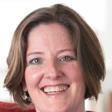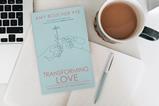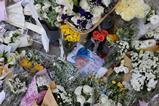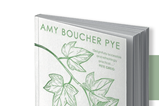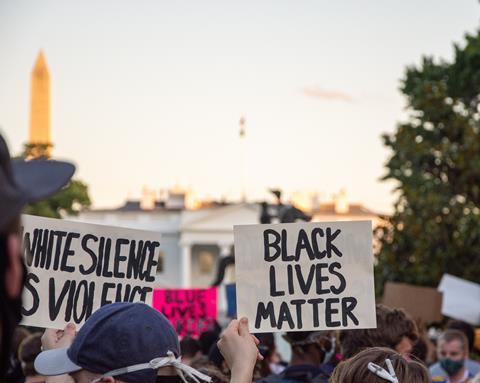
The death of George Floyd by the Minneapolis police officer on 25 May felt very close to home. I grew up in the suburbs of the Twin Cities of Minnesota in an idyllic childhood – loving parents, two siblings to squabble with and love, plenty of friends, a strong, well-funded public school to attend where I made the honor roll.*
So to see the photos of the police officer murdering George Floyd in my hometown felt even more heartrending than hearing about the horrific killing of Ahmaud Arbery reported only a few weeks before or the unsettling racially motivated incident in New York City’s Central Park just days before. This was my Minnesota, which was supposed to be “Minnesota nice.” Racism, I still unconsciously believed, was something that happened elsewhere in America, not in my bubble of whiteness.
The death of George Floyd burst that bubble. I watched Minneapolis burn, the protests turning violent. In the days afterward, following the news obsessively, I comforted myself with the thought that racial tensions are not as divisive here in the UK, and I posted on social media an article published by the BBC along these lines. But that longheld belief has needed to come toppling down, like statues commending slaveholders.
I realise now that racism is a problem wherever I go. In sharing the BBC article, I was, in effect, sweeping under the carpet the pain over Stephen Lawrence’s murder and the police’s handling of it. I was disregarding the findings that people of a BAME background are dying at a higher rate than white people from coronavirus. I was revealing my white privilege.
I would never have called myself a racist, but now I realise that I wasn’t anti-racist. That is, I wasn’t using my voice to speak against the evils of an institutionalised bias against people of certain races. We have to seek to dismantle institutional racism step by step – beginning in the hearts and minds of individuals. And so I am seeking to educate myself on race issues in both the countries I love and am citizens of.
If you, like me, need to learn, you can benefit from the many available resources. Here are just a few recommendations (see also the discussion in our Woman Alive Facebook book club of what people are reading about race):
- Last year I reviewed in our book club Ben Lindsay’s We Need to Talk About Race, a look at racism in UK churches, which I commend
- “We need to talk about race: Black experience in white majority churches” hosted by St Paul’s Cathedral and featuring Ben Lindsay, Guvna B, Rosemarie Mallett, and Chine McDonald on 29 October 2019. You can watch it here
- For the month of June, you can watch “Just Mercy” for free on streaming platforms; it’s a moving film that recounts Bryan Stevenson’s work with prisoners on America’s death row
- Until 12 June only, IVP US is offering a free ebook to all from their “Resources for Faithful Justice” line
- I’m reading Patricia Raybon’s award-winning book My First White Friend: Confessions on Race, Love and Forgiveness, which shares her experience of growing up under the Jim Crow laws in the States and how she eventually stopped hating white people as she learned to forgive
- Coracle, a wonderful group based in the States concerned with “spiritual formation for kingdom action” has put together a list of resources for racial healing and justice
May we be people who celebrate deep differences without discrimination. May we lament over the evils of racism. May we seek to make our society a place where all people can thrive. May we be open to learning that we too hold ideas that can hurt others. And may God forgive us and help us.
* UK translations – the Twin Cities are Minneapolis and St. Paul, for they grew up next to each other and now form one metropolis; my schools weren’t a “public school” like in the UK, but government-funded ones attended by local children; the honor roll is for the top 10 percent of high performing students.
Photo by Koshu Kunii on Unsplash
